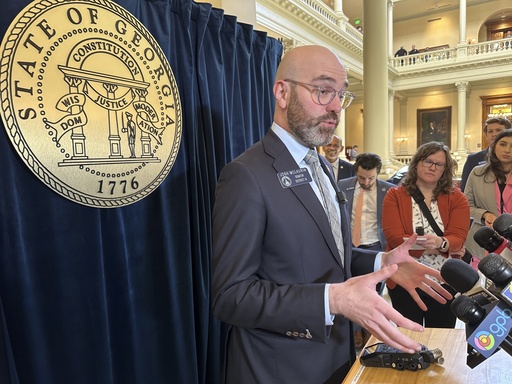The Georgia Senate has passed a contentious new bill with a 33-21 vote, proposing to give legislators a say in approving significant regulations introduced by the executive branch. The bill, which has stirred concerns over its potential impact on safety efforts and environmental protections, is a priority for Lt. Gov. Burt Jones as he eyes a potential gubernatorial run in 2026. Jones likened the initiative to a movement akin to Elon Musk’s mission to cut down federal government spending and regulation, which some have termed the Department of Government Efficiency. However, with growing backlash against Musk’s approach, some supporters have distanced themselves from this branding.
Republican Senator Greg Dolezal of Cumming, the bill’s sponsor, emphasized that while the bill is inspired by the ethos of Musk’s efforts, it significantly differs in its application. Meanwhile, Democrats voiced concerns about the bill’s implications, warning it could lead to service reductions similar to those Musk advocates, despite its primary focus on state-level regulatory constraints. Senator Kim Jackson from Stone Mountain, serving as Senate Minority Whip, raised alarms over potential cuts to crucial programs impacting thousands of Georgians.
Now heading to the House for further deliberation, the bill comes at a time when Republicans have dominated Georgia’s legislature and governor’s office for over two decades. Despite this, proponents argue that Senate Bill 28 is essential to ensure legislative oversight on the rulemaking process within the executive branch. Dolezal framed the bill as a necessary measure to prevent administrative overreach that could inadvertently burden citizens.
However, critics argue that the proposal carries an underlying anti-government sentiment. Democratic Senator Josh McLaurin remarked that sweeping regulation cuts can strip due process from regulations, likening the move to an arbitrary slashing of vital protections. Previous versions of this proposal, calling for small business impact analyses for new laws, failed to pass despite making headway last year. The current iteration broadens its scope, stating that regulations with an economic impact exceeding $1 million over five years will be stalled pending legislative approval.
This financial cap amounts to a minimal cost per Georgian over a five-year span, yet it mirrors other states’ efforts to limit agency regulations deemed costly. Kansan legislation, for instance, abandoned attempts to update fire safety codes, while Wisconsin halted moves to curb PFAS chemicals and nitrate contamination in groundwater owing to similar laws. Concerns remain that such measures purely focus on costs, ignoring prospective benefits, potentially stalling necessary regulatory reforms.
Despite this potential power shift from the executive branch, Governor Brian Kemp’s office has not commented on the issue. The legislative drive echoes actions in Florida, Kansas, and Indiana, where Republican-majority legislatures have sought greater control over regulations, often in opposition to Democratic governors or reinforcing Republican governance. This legislative push, mirrored by the REINS Act at the federal level and advocated by conservative entities such as Americans for Prosperity, could significantly reshape regulatory processes.
Under the proposed Georgia bill, single legislators would have the authority to dispute any rule impacting under $1 million, and agencies would be mandated to review current rules every four years. The provision allows public commentary unless agencies reduce their rule count by 10% within the same timeframe. To maintain existing guidelines, agencies must adhere to a new adoption protocol, potentially pausing any rule with ongoing compliance costs until it gets legislative green light.


